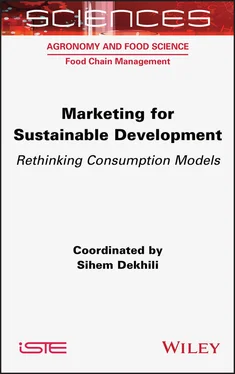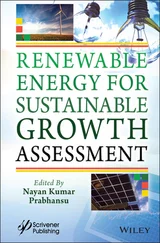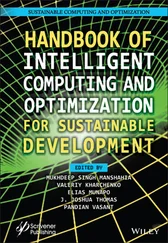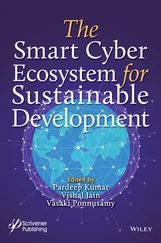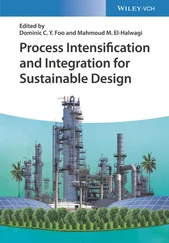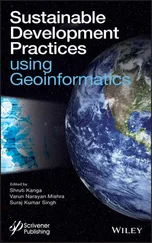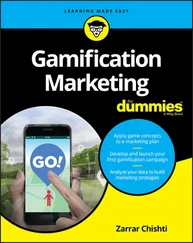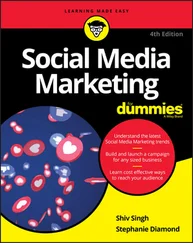1 Cover
2 Title Page SCIENCES Agronomy and Food Science , Field Directors – Jack Legrand and Gilles Trystram Food Chain Management , Subject Head – Jean-Marc Ferrandi
3 Copyright First published 2021 in Great Britain and the United States by ISTE Ltd and John Wiley & Sons, Inc. Apart from any fair dealing for the purposes of research or private study, or criticism or review, as permitted under the Copyright, Designs and Patents Act 1988, this publication may only be reproduced, stored or transmitted, in any form or by any means, with the prior permission in writing of the publishers, or in the case of reprographic reproduction in accordance with the terms and licenses issued by the CLA. Enquiries concerning reproduction outside these terms should be sent to the publishers at the undermentioned address: ISTE Ltd 27-37 St George’s Road London SW19 4EU UK www.iste.co.uk John Wiley & Sons, Inc. 111 River Street Hoboken, NJ 07030 USA www.wiley.com © ISTE Ltd 2021 The rights of Sihem Dekhili to be identified as the author of this work have been asserted by her in accordance with the Copyright, Designs and Patents Act 1988. Library of Congress Control Number: 2021940271 British Library Cataloguing-in-Publication Data A CIP record for this book is available from the British Library ISBN 978-1-78945-036-1 ERC code: LS9 Applied Life Sciences, Biotechnology, and Molecular and Biosystems Engineering LS9_5 Food sciences (including food technology, food safety, nutrition) SH2 Institutions, Values, Environment and Space SH2_6 Sustainability sciences, environment and resources SH1 Individuals, Markets and Organisations SH1_10 Management; marketing; organisational behaviour; operations management
4 Foreword
5 Acknowledgments
6 Introduction
7 1 Opposing the Market Through Responsible Consumption to Transform It 1 Opposing the Market Through Responsible Consumption to Transform It Abdelmajid AMINE and Mouna BENHALLAM IRG, University Paris-Est Créteil, France
1.1. Introduction 1.2. Corporate adjustment strategies in response to the contestation of market logic 1.3. Ideological and institutional categories of expressions of contestation 1.4. Pragmatic and operational categories of market contestation 1.5. Conclusion and implications 1.6. References
8 2 Luxury and Sustainable Development: Companies and the Challenge of Overcoming Consumer Reluctance 2.1. Introduction 2.2. The commitment of the luxury sector to sustainability: an unavoidable but risky strategic choice! 2.3. The perceived contradiction between luxury and sustainable development: origins and solutions 2.4. Conclusion 2.5. References
9 3 The Fight Against Food Waste: Approaches and Limits to Consumer-based Actions 3.1. Introduction 3.2. Food chains under tension, food losing value 3.3. Consumer responsibility 3.4. Reducing food waste in mass catering 3.5. Conclusion 3.6. References
10 4 Food Waste in Family Settings: What are the Challenges, Practices and Potential Solutions? 4.1. Introduction 4.2. The actors in family food waste: everyone is involved! 4.3. Multifaceted wastage during family consumption at home 4.4. Conclusion: What about the future? 4.5. References
11 5 The Packaging-free Product Market: A Renewal of Practices 5.1. Introduction 5.2. The characteristics of packaging-free consumption 5.3. Offerings on the packaging-free product market 5.4. Conclusion 5.5. References
12 6 The Conditions for Effective Social Communication 6.1. Introduction 6.2. Social communication: a shifting reality 6.3. How can the credibility of communication be ensured? 6.4. How can CSR provide added value to customers? 6.5. Conclusion 6.6. References
13 7 The Effectiveness of “Provocation” in Environmental Advertising: Beware of “Greenbashing” 7.1. Introduction 7.2. Greenbashing: clarification of a new concept 7.3. The effects of provocation on the effectiveness of environmental advertising 7.4. Conclusion 7.5. References
14 8 How Can We Communicate Effectively About Climate Change? 8.1. Introduction 8.2. A gap between awareness and behavior 8.3. How can we communicate about climate change? 8.4. Mental representations of climate change among children 8.5. Conclusion 8.6. References
15 9 Environmental Regulations and Awareness-raising Campaigns: Promoting Behavioral Change through Government Interventions 9.1. Introduction 9.2. Overview of the environmental intervention tools of public authorities 9.3. Improving the effectiveness of pro-environmental public policies: the contribution of marketing 9.4. Conclusion 9.5. References
16 10 The Repairability of Household Appliances: A Selling Point for Utilitarian Products 10.1. Introduction 10.2. Repairability: a complex concept 10.3. The effects of a “repairability” label on purchasing behaviors: mixed results 10.4. Conclusion 10.5. References
17 11 The Role of the Fairtrade Label in the Spread of Sustainable Production and Responsible Consumption in West Africa: The Case of Côte d’Ivoire 11.1. Introduction 11.2. The Fairtrade label: towards sustainable production and responsible consumption 11.3. The application of the Fairtrade label by producer organizations in Côte d’Ivoire: challenges and implications 11.4. Conclusion 11.5. References
18 12 Mobile Apps and Environmentally Friendly Consumption: Typology, Mechanisms and Limitations 12.1. Introduction 12.2. A typology of environmentally friendly mobile apps 12.3. The influence of mobile apps on behavior 12.4. What are the implications for the different actors in environmentally friendly consumption? 12.5. Conclusion 12.6. References
19 13 Digitalization in the Service of Socially Responsible Consumption? Focus on Food Consumption 13.1. Introduction 13.2. The paradoxes of digitalization and sustainable food 13.3. Digital technology: a powerful tool 13.4. Conclusion 13.5. References
20 14 Augmented Products: The Contribution of Industry 4.0 to Sustainable Consumption 14.1. Introduction 14.2. Infrastructures and processes 14.3. Analytical capabilities 14.4. Conclusion 14.5. References
21 Conclusion
22 List of Authors
23 Index
24 End User License Agreement
1 Cover
2 Table of Contents
3 Title Page SCIENCES Agronomy and Food Science , Field Directors – Jack Legrand and Gilles Trystram Food Chain Management , Subject Head – Jean-Marc Ferrandi
4 Copyright First published 2021 in Great Britain and the United States by ISTE Ltd and John Wiley & Sons, Inc. Apart from any fair dealing for the purposes of research or private study, or criticism or review, as permitted under the Copyright, Designs and Patents Act 1988, this publication may only be reproduced, stored or transmitted, in any form or by any means, with the prior permission in writing of the publishers, or in the case of reprographic reproduction in accordance with the terms and licenses issued by the CLA. Enquiries concerning reproduction outside these terms should be sent to the publishers at the undermentioned address: ISTE Ltd 27-37 St George’s Road London SW19 4EU UK www.iste.co.uk John Wiley & Sons, Inc. 111 River Street Hoboken, NJ 07030 USA www.wiley.com © ISTE Ltd 2021 The rights of Sihem Dekhili to be identified as the author of this work have been asserted by her in accordance with the Copyright, Designs and Patents Act 1988. Library of Congress Control Number: 2021940271 British Library Cataloguing-in-Publication Data A CIP record for this book is available from the British Library ISBN 978-1-78945-036-1 ERC code: LS9 Applied Life Sciences, Biotechnology, and Molecular and Biosystems Engineering LS9_5 Food sciences (including food technology, food safety, nutrition) SH2 Institutions, Values, Environment and Space SH2_6 Sustainability sciences, environment and resources SH1 Individuals, Markets and Organisations SH1_10 Management; marketing; organisational behaviour; operations management
Читать дальше
